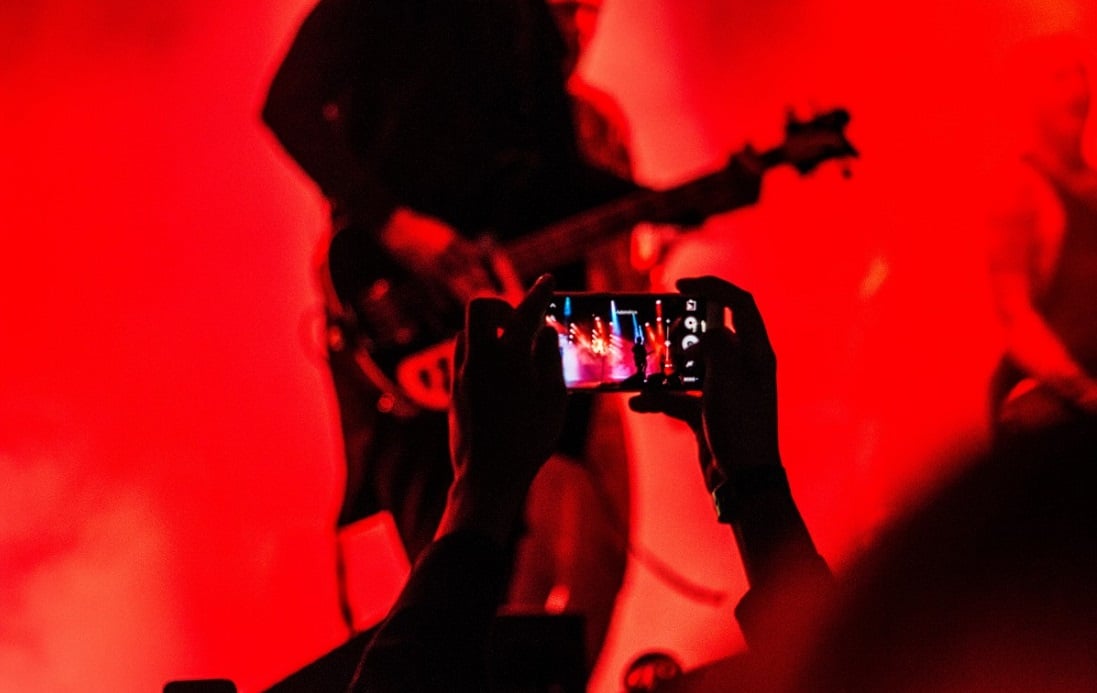
Who should be responsible for streaming fees?
PRS backpedals on streaming licence for small events
A temporary change to its controversial fees has received both a warm welcome and a cold shoulder.
PRS for Music has temporarily made some licences for streaming small-scale live ticketed events free following industry backlash.
Just days ago, collection society PRS announced it would charge events earning less than £500 between £22.50 and £45 to the fury of many organisations it had failed to consult.
Music industry professionals said the tariff – more than double the rate of that applied to in-person live events – would make much of the sector's current activity unviable.
READ MORE:
- Shock and anger as PRS announce streaming licences
- Artists protest PRS' plans for livestreaming licences
Now PRS has backpedalled, but only slightly, offering free licences "throughout the period the live sector is forced to close due to the Covid-19 crisis where the qualifying member is also the performer".
This means higher-earning live streamed events (over £500) and smaller-scale events featuring non-original content must still pay a fee.
Songwriter-performers will also be expected to pay to livestream shows once venues reopen, raising questions about profitability amid projections of more blended delivery models in future.
'Listening to feedback'
Michelle Escoffery, President of the PRS Members' Council, said in a statement that "the change announced today, we hope, addresses many of the concerns expressed to us over the last few days".
"PRS will continue to listen to the views of our members in these most difficult times," she added.
Music Venue Trust CEO Mark Davyd welcomed "this logical revision" of PRS' licensing plans.
He claimed hundreds of live events had already been lost. Some pulled out of Independent Venues Week last weekend, citing the sudden extra licensing cost.
"The announcement of the Online Small Scale Tariff last week, without prior consultation or discussion, was ill conceived and poorly executed. It is good to see PRS for Music acknowledging their error by immediately removing this charge."
However, he noted that the change – once again – happened without the Trust being consulted.
"A long term solution that ensures that songwriters whose work is performed in the grassroots sector are recognised and rewarded is achievable.
"It requires PRS for Music to enter into serious discussions in good faith, prepared to listen and prepared to consider evidence that can result in positive, forward facing solutions for all stakeholders."
PRS says it consulted promoters and managers over the past nine months to develop tarrifs that "strike the right balance between providing a simplified licensing scheme for licensees while ensuring members get paid for the use of their works".
The society says it will be "accelerating its ongoing dialogue with key stakeholders on an interim rate" for more profitable live streams, which are currently required to negotiate a rate in lieu of a flat fee arrangement.
Across the spectrum
The reaction elsewhere in the music sector has not been as temperate: "Just scrap the f…ing thing," musician and composer Ian St James tweeted.
"You know you're on the wrong side with this one. Consult with your stakeholders and find a fair and equitable solution. Surely that's not too much to ask at time when we should all be working together."
Arts entrepreneur and presenter David Taylor shared a similar view – "this is still utterly ridiculous… still hurts musicians during Covid" – and songwriter and musician Karine Polwart said the waiver, while welcome, does not address the disproportionate impact on small events and artists.
PRS' Chief Executive Andrea Martin commented that there is widespread support for songwriters and composers to be paid fairly for usage rights.
The online global ticketed livestreamed concerts market generated an estimated US$600 million in 2020, the society says.
"PRS for Music represents 150,000 songwriter, composers and publishers from the UK and around the world. Live streamed concerts developed rapidly out of the pandemic and it is my job, in a fast changing market, to ensure they get paid fairly and efficiently at all times," Martin said.
Davyd agreed that venues want songwriters to recieve an appopriate fee for their material.
"Let's work together to fix a broken system that recognises and rewards that."
Other options
Broadcasting and media company TheMill.tv says it wants DCMS to investigate PRS' practices, "which can no longer be said with any confidence are working [in] the best interests of their members".
It was glad PRS had backed down somewhat: "This is a significant step forward which is welcome in the short term, and we will fight on to ensure that root and branch reform of this archaic licensing system takes place in a manner that is fair to songwriters and performers in the long term."
Other online commenters said the onus of payment should be on the platforms, rather than promoters and performers.
"It's ridiculous for Twitch – owned by the richest person on this planet (Jeff Bezos) – to put the onus on its users to get a licence," songwriter Helienne Lindvall said by way of example.
Musician John Spiers said many questions remain unanswered.
These include whether free licensing applies to charity gigs or original material performed via a third party, at what point the music industry will be considered open again, and whether the licence covers teaching.
"I was told we'd be sent an FAQ to allay our fears last Friday.. but there are still no specifics for us to read," he said.
Join the Discussion
You must be logged in to post a comment.